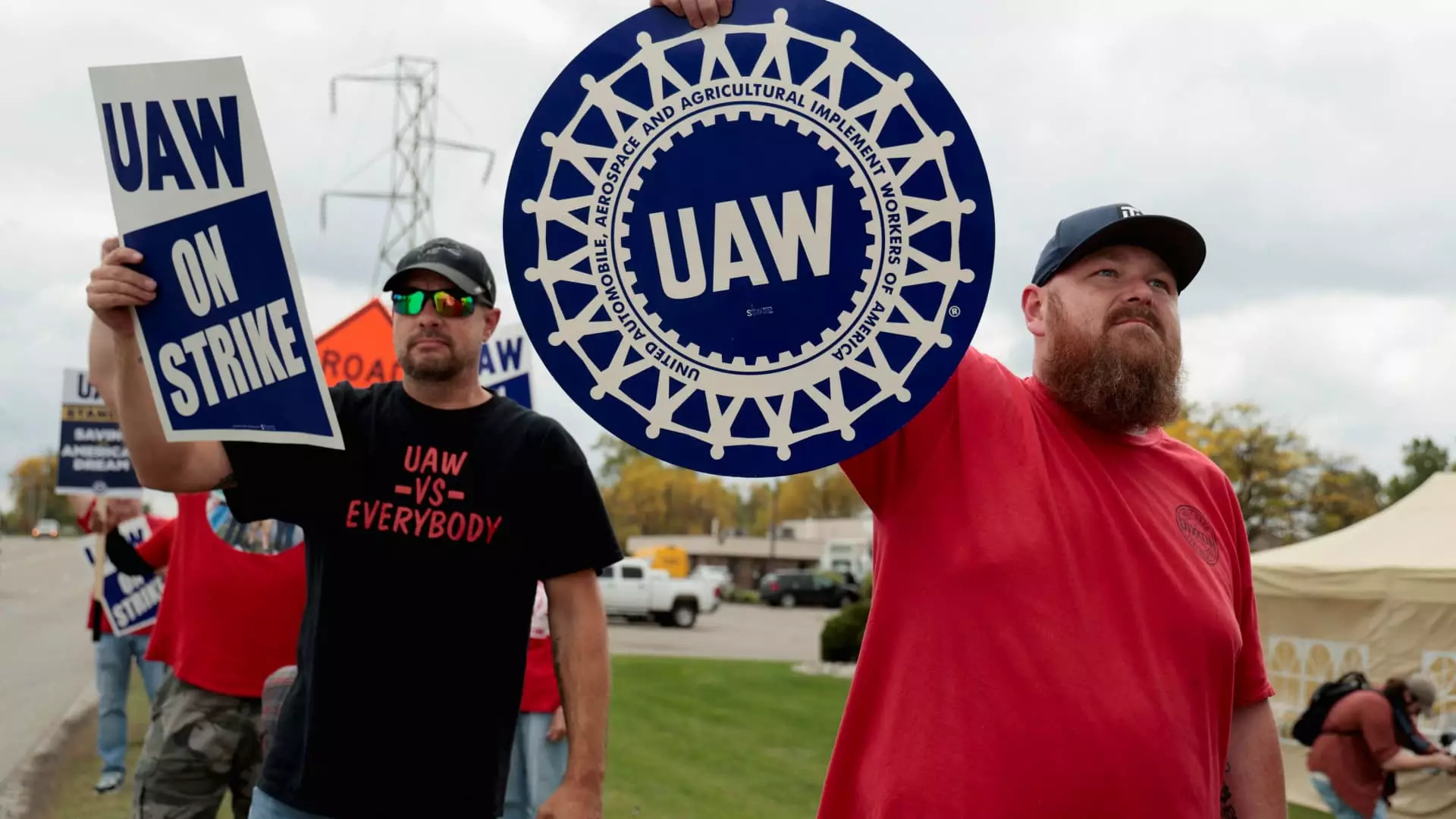Republican governors from six states have come out strongly against the United Auto Workers’ (UAW) attempts to organize automotive factories in the South. They argue that unionization efforts could potentially lead to layoffs and decreased future investments in the automotive sector. The joint statement signed by the governors of Alabama, Georgia, Mississippi, South Carolina, Tennessee, and Texas, highlights their concerns about the negative impact of UAW involvement in the region’s automotive industry.
The elected state leaders, including Tennessee Governor Bill Lee, assert that while the union-negotiated contracts may provide short-term benefits, they could have long-term detrimental effects on job stability and investment opportunities in the states. They emphasize the importance of bringing good-paying jobs to their states and express fear that unionization may jeopardize these opportunities. The statement underscores the governors’ commitment to protecting and promoting the manufacturing industry in their respective states.
The UAW, which is currently organizing a vote of Mercedes-Benz workers in Alabama alongside the Volkswagen workers in Tennessee, did not immediately respond to the governors’ statement. The union has been actively pursuing organizing efforts in the South, targeting 13 automakers in the region and beyond. However, the governors’ concerns about layoffs and reduced investments have raised questions about the potential consequences of increased unionization in the automotive sector.
Following the ratified UAW contracts with major automakers like General Motors, Ford Motor, and Stellantis, there have been reports of buyouts and layoffs affecting both salaried and hourly workers. Automakers have been implementing cost-cutting measures to invest in electric vehicles, address market conditions, and prepare for a possible economic downturn. Stellantis, formed from the merger of Fiat Chrysler and PSA Groupe, has been at the forefront of workforce reductions, particularly affecting supplemental or temporary workers who do not have the same benefits as regular employees under the union contracts.
In addition to Governor Lee of Tennessee, other Republican governors who signed the statement against UAW’s organizing efforts include Governor Kay Ivey of Alabama, Governor Brian Kemp of Georgia, Governor Tate Reeves of Mississippi, Governor Henry McMaster of South Carolina, and Governor Greg Abbott of Texas. Their unified stance reflects a shared concern about the potential impact of increased unionization on the automotive industry and overall economic stability in their states.
Despite the governors’ warnings about layoffs and decreased investments, the UAW’s organizing drive continues, with ongoing efforts to unionize workers in various automakers across the Southern states. The debate over the role of labor unions in the automotive sector and the implications for workers and employers remains a contentious issue. As the Volkswagen workers in Chattanooga prepare to vote on union representation, the outcome of these organizing efforts will have far-reaching consequences for the future of labor relations in the region.



Leave a Reply